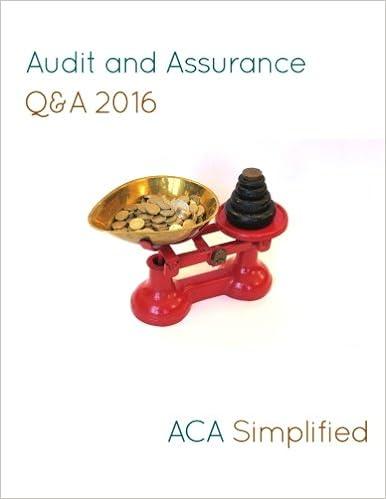Question
R and R Industries makes mattresses that are made from celliant-infused fabric. The fabric has been proven to promote restful sleep and increased comfort. R
R and R Industries makes mattresses that are made from celliant-infused fabric. The fabric has been proven to promote restful sleep and increased comfort. R and Rs management team is determining manufacturing budgets for 2019 and has set the following standards for each mattress:
Direct materials, $250.00
Direct manufacturing labour, $150.00
Variable manufacturing overhead, $ 85.00
Fixed annual manufacturing costs for the year are budgeted for $1,260,000.
Management has determined that due to GAAP reporting requirements, normal capacity is the level of annual mattress production that should be used as the denominator to determine the overhead application rate. The following paragraph is a discussion the team had in relation to this.
Denominator activity levels:
To satisfy demand for the 2019 year the vice-president of production plans to produce 18,000 mattresses. However, the marketing manager has identified that the demand between 2016 and 2018 has averaged 20,000 mattresses per year. R and Rs manufacturing plant has the capacity to produce 30,000 mattresses annually assuming the plant is operating 365 days of the year. However, taking into consideration usual closures for such situations as weekends, holidays, and sick time, it is more likely the plant could produce 24,000 mattresses annually.
Required:
In preparation for 2019:
- Based on the descriptions in the paragraph titled, Denominator activity levels above, select the production level of mattresses that is related to normal capacity. Using that activity level calculate the fixed manufacturing overhead application rate for 2019.
- State which of the production levels described in the paragraph titled Denominator activity levels represents practical capacity. Identify what useful information could be used for decision making from applying fixed manufacturing overhead using practical capacity. Explain why it is useful.
At the end of 2019 it was determined that actual production for the year was 21,000 mattresses and 18,000 mattresses were sold. There was no beginning inventory of mattresses and unsold mattresses were recorded on the balance sheet at the standard cost determined at the beginning of the year.
All product costs for 2019 were at standard costs determined at the beginning of the year. As such there are no price, efficiency, or rate variances. Any production volume variance is written off to the cost of goods sold for the year.
Variable selling and administrative expenses were $45.00 per mattress sold.
Fixed selling and administrative expenses were $825,000
The selling price per mattress was $850.00
- Prepare an income statement using absorption costing in the gross margin format.
- Prepare an income statement using variable costing in the contribution margin format.
Provide the calculations (below) to reconcile the difference between the operating income calculated in part (c) and the operating income calculated in part (d).
Step by Step Solution
There are 3 Steps involved in it
Step: 1

Get Instant Access to Expert-Tailored Solutions
See step-by-step solutions with expert insights and AI powered tools for academic success
Step: 2

Step: 3

Ace Your Homework with AI
Get the answers you need in no time with our AI-driven, step-by-step assistance
Get Started


